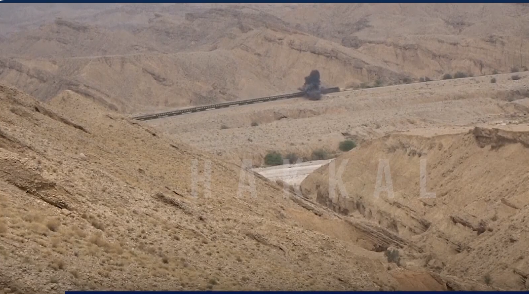
A Tragic Standoff Ends with Hundreds Rescued
In a shocking turn of events, nearly 350 hostages were rescued after a violent standoff between Pakistan’s military and armed militants who hijacked a train in Balochistan. The deadly incident, which started on Tuesday, resulted in numerous casualties and has once again highlighted the region’s fragile security situation.
According to a security source, the separatist militant group, Baloch Liberation Army (BLA), claimed responsibility for the attack. The group has long been active in the mineral-rich province, demanding greater political autonomy and economic rights.
Casualties and The Military’s Response
27 hostages were brutally executed by the militants.
One Pakistani soldier lost his life during the rescue mission.
At least 35 insurgents were killed in the operation carried out by the military.
Around 450 passengers were on board the Jaffer Express when it was attacked.
As the train made its way from Quetta to Peshawar, the militants launched an intense attack as it passed through a tunnel. According to security officials, the attackers used women and children as human shields, making the rescue operation even more difficult.
Survivors Share Harrowing Experiences
Passengers who lived through the terrifying ordeal have shared chilling accounts of the attack, painting a grim picture of the horror they faced.
‘It Was Like the Day of Judgement’
One rescued woman described the mayhem, saying the attack felt like the “Day of Judgement.” She managed to escape the gunfire and walked for two hours to reach safety.
Passengers Were Targeted Based on Identity
Survivor Arslan Yousaf recalled how the militants stormed the train after a loud explosion.
“They had launchers, guns, and other weapons. They began shooting at people immediately. Then things took a darker turn. They started checking ID cards—separating Punjabis, Sindhis, and Baloch. Sometimes they took soldiers outside and executed them. Other times, they killed individuals they had personal grudges against.”
Two Days Without Food or Water
Muhammad Tanveer, who was held hostage for two days, recounted the dire conditions inside the train.
“We had nothing to eat. We had to drink water from the train’s washroom just to survive. Then, last night, the army came. They cleared everything, gave us food, water, and protection.”
The Insurgency in Balochistan: A Growing Threat
The attack marks a major escalation in the long-standing insurgency in Balochistan. The region, rich in natural resources, has been at the centre of a conflict between separatist groups and the Pakistani government for decades.
Balochistan’s grievances: The local population, mostly ethnic Baloch, has long felt alienated due to economic disparities and lack of political representation.
Chinese investments and security concerns: The province is home to the Gwadar port, a key part of China’s Belt and Road Initiative. Insurgent attacks on Chinese workers and infrastructure have become a major security challenge.
A history of deadly attacks: The BLA has been responsible for several violent incidents in recent years. In November, a suicide bombing at a train station in Quetta killed over 20 people. The group has also targeted Chinese engineers and other government interests in the past.
Government Response and Calls for Action
Following the attack, Pakistan’s Prime Minister Shehbaz Sharif condemned the terrorists and vowed to eliminate militancy from the country.
“The terrorists’ targeting of innocent passengers during the peaceful month of Ramadan is proof that they have no connection with Islam, Pakistan, or Balochistan. We will continue to fight against terrorism until it is completely eradicated.”
Security Experts Warn of Increasing Threats
Analysts believe that Tuesday’s attack signals a shift in the insurgents’ strategy and highlights Pakistan’s struggle to maintain control over the region.
Abdul Basit, a security expert at the S. Rajaratnam School of International Studies in Singapore, stated:
“Pakistan’s counterinsurgency policies seem to have run their course. The insurgency is evolving in both strategy and scale, and the government must rethink its approach.”
What’s Next for Balochistan?
The attack has raised concerns not just within Pakistan but also internationally, especially in China, which has significant economic investments in the region. Experts warn that if Pakistan does not take urgent steps to address the root causes of the insurgency, the security situation could worsen.
The government now faces mounting pressure to strengthen its intelligence operations, improve local governance, and address the long-standing grievances of the Baloch people. The question remains: will Pakistan take a new approach, or will the cycle of violence continue?
Conclusion
The Balochistan train attack serves as a grim reminder of the deep-rooted security issues in Pakistan. While the military successfully rescued hundreds of hostages, the incident underscores the growing sophistication of insurgent operations. As Pakistan grapples with these challenges, the need for a comprehensive security and political strategy has never been more urgent.
